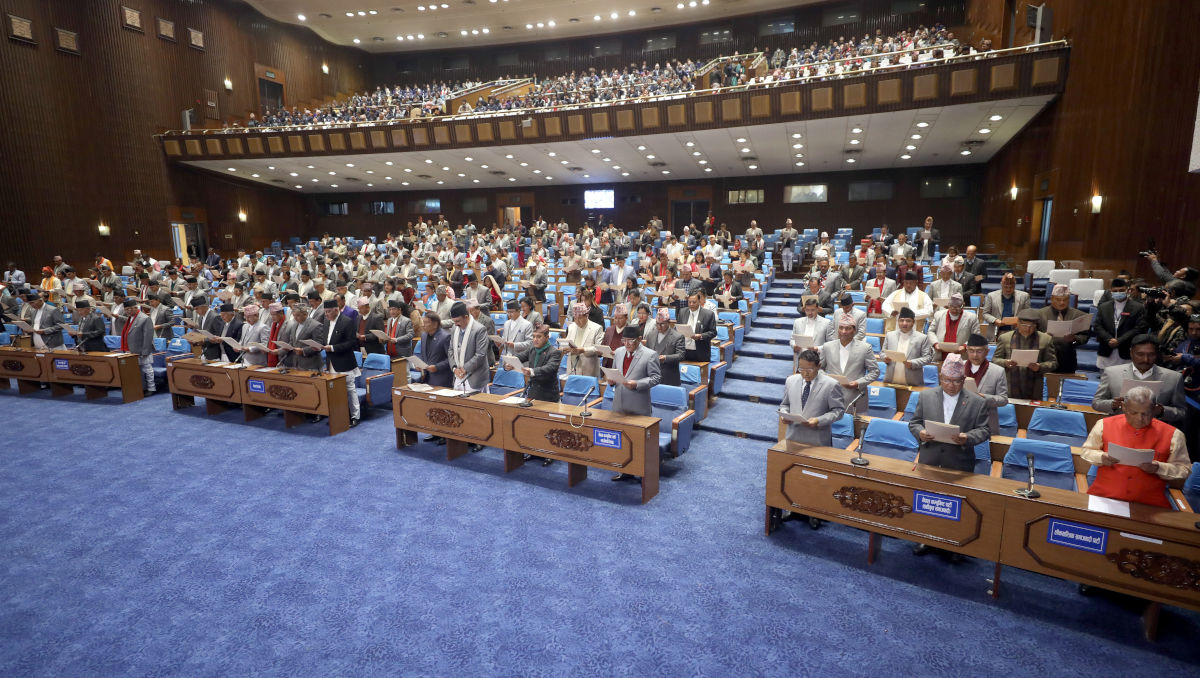What does an MP do?
The Constitution of Nepal 2015 has laid foundations for a bicameral legislature. According to article 83 of the Constitution, the Federal Parliament comprises of two houses: the House of Representatives (Lower House) and the National Assembly (Upper House).
A total of 275 members of parliament (MPs) make up the House of Representatives (HoR). 165 MPs are elected under the first-past-the-post system and 110 MPs under proportional representation.
 Image credit: https://hr.parliament.gov.np
Image credit: https://hr.parliament.gov.npSumana Shrestha was elected under the proportional representation to the House of Representatives in the Federal Elections 2022.
But what does it mean to be an MP? What are the powers that an MP can exercise in changing the structure of the society and contributing towards its betterment? The roles and responsibilities of an MP are as follows:
Create accountability in the legislative body
Create information hub - Communicate in an accessible manner (i.e not scanned copies, searchable softcopies) of all registered private and government bills to the public to invite public debate and discussion before amending, retracting, and editing any bills and ordinances.
Implement real-time reporting of the work by the legislative body
Organize public hearings, and conduct surveys to ensure close alignment with the public to keep up with the new challenges faced by people and to update and report to the public
Create accountability in the executive body – bureaucracy
- Work via Lekha Parikhchan Committee to ensure work delivery by the bureaucracy
- Monitoring - Visit various government departments and service providers to ensure timely and proper service delivery to the general public
- Strictly implement the reward and punishment system in the bureaucracy
Create accountability in the judiciary body
- Remove unfair political appointments in the judiciary body
- Attend all constitutional hearings to ensure the right people without conflict of interest are being appointed to judiciary positions
Monitor financial concerns, including revenue sources, industrial enterprises, national plans and budget policies
- Identify and monitor souces of revenue (industry, commerce, tourism, service-oriented businesses, FDI, tech sector, agriculture, small and medium enterprises, etc) and its impacts on national income and in the lives of citizens
- Work diligently in monitoring the government’s annual policy and program, budget allocation and central level planning, resource mobilization and implementation. Depending on the contemporary needs of the citizens, establish a fund mechanism to increase capital expenditure and to use the annual budget in a timely manner, so that the country and the people get maximum returns.
- Review the annual plans, policies and budget to identify areas of overspending and luxury spending by legislative body, bureaucracy and judiciary and create policies to remove such extravagant expenditures.
Focus on good governance, public interest and citizen service delivery
- Understanding current and long-term policy issues faced by citizens through public hearings and regular surveys.
- Focus on procedural changes to improve administrative service delivery to all citizens (identification documents, driving licenses, social protection trasfers, etc.).
- Listen to public complaints about difficulties experienced in using any public service, administrative hassles, delays and harassment from the service provider personnel, losses or fraud incurred in the purchase and consumption of services and goods. Accordingly, lobby to establish a powerful vigilance system with parliamentary monitoring, to punish service providers, at least at the local level. Raise strong voices in the parliamentary meetings and keep warning until the rule of law and comprehensive administrative reforms are guaranteed at the public level.
Focus on research, policy advocacy and debate
- Establish well-resourced, representative and inclusive think tank departments comprising of academic researchers and experts to collect, research and analyze data to formulate opinions on any bill and national issues. Conduct policy advocacy based on evidential and empirical research.
- Periodical review and comprehensive study of the implementation of multi-pronged laws so that stakeholders can know their impact and efficiency among common citizens and remove unwanted loopholes and make timely amendments.
- Prevent the undue influence of any vested interest group in the law-making process, strengthen the secretariat service with impartial manpower and appropriate technology.